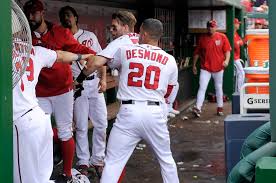Baseball Rules in Black and White (College Edition), the
second book in the Black and White series is quickly becoming a finished
manuscript that will become available in August / September of 2017. This work is a collaboration of well-respected
baseball rules interpreters, assigners, and Division I & II college umpires
and it is a privilege to be working with this elite group of rules experts.
We have spent months selecting and revising the
specific College rules that are most often called, challenged or confused for
this book. Our goal is to provide an enhanced
resource that presents a clearer understanding, while creating a greater retention
of complex rules.
Our Black and White format quickly locates
a topic, gathers related rulings, and our rule language is revised (straightforward).
Just as with our High School edition of
Black and White every revised ruling has the official rule and page number
attached, all in large easy to see font. NCAA Umpires will be very
happy to know our unique Black and White Format is especially beneficial clarifying
the most complicated rulings such as Designated
Hitter, P/DH.
At
this time there are seventeen chapters in our 2017-18 College Edition that
include the following:
1. Balk, 2. Base Awards, (Squeeze
Play / Catch & Carry), 3. Batting Out of Order,
4. Bench and Field Conduct, 5. Charged Conferences, 6. Designated Hitter, P/DH, 7. Infield Fly, 8. Interference
- Batter’s, (Penalty), 9. Interference -
Offensive, Umpire, Spectator, 10. Interference
– Runner’s / Catcher’s, 11. Interference -
Runner Hit by a Fair Batted Ball, 12. Obstruction,
13. Pitching Stances, 14.
Running Lane, 15. Slide – Legal, Illegal, Force Play Slide Rule, 16. Substitutions
– Definition, 17. Verbal & Written Warnings and Ejections
Baseball Rules in Black and White’s (College Edition) does require your time and effort (like every
rule book) in order to benefit from its information. The difference with Black
and White is, you will gain greater rule (clarity) knowledge in a shorter
time, with better retention.
Author,
James C, Bettencourt





